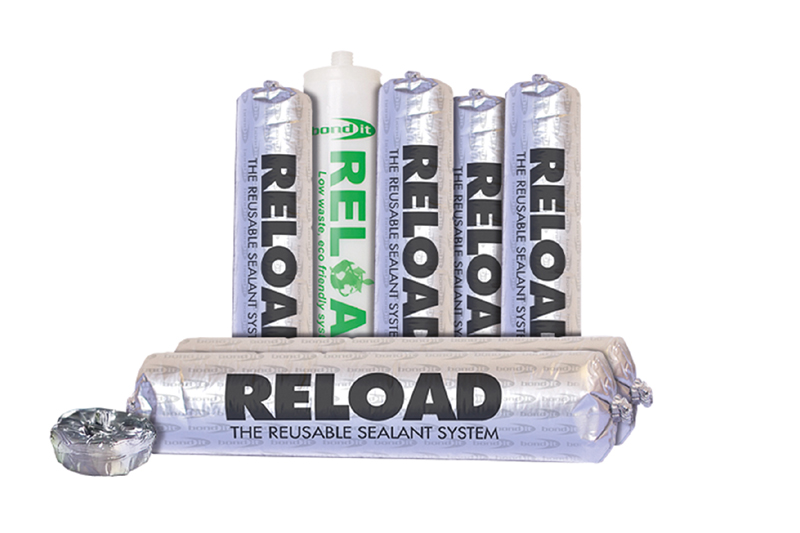
Throughout 2022, we have seen greater evidence than ever before of the effects of climate change. Given these warning signs, there is an urgent need for all of us to renew our focus on more sustainable building methods and materials. Dean Morgan, Managing Director at Bond It, explains more.
So far this year, we have witnessed weather that wouldn’t appear out of place in a Hollywood disaster film. Starting in January, the UK and much of Northern Europe were battered by a succession of powerful storms including Storm Malik — an extratropical cyclone that caused widespread damage and some loss of life.
During the summer, much of Europe, the US, and parts of East Asia baked in searing heatwaves. These heatwaves occurred earlier, lasted longer and reached higher temperatures than at any other time in recent memory — leading to drought, famine and tens of thousands of associated deaths.
More recently, South Asia — and Pakistan and Bangladesh in particular — have been affected by heavier than usual monsoon rains, causing record-breaking floods that have impacted more than 33 million people and cost the lives of over 1,700.
Scientists around the world agree that most, if not all, of these extreme climatic events have been made more likely, or more severe, by the activity of humans. Put another way, climate change is no longer an abstract concept.
It’s a tangible reality, and one that even the most fervent climate change denier must now find difficult to ignore.
Given this fact, there is a strong need for all of us throughout the building industry — whether we’re a manufacturer, a merchant or a trade professional — to renew and redouble our efforts to reduce our environmental impact.

Inaction is not an option
Bond It, like many manufacturers who supply the merchanting sector, continues to take steps to operate in a more sustainable way and to minimise our contribution to the many different, acknowledged causes of climate change.
For example, back in 2016, we invested over £150,000 into installing 542 solar panels on the roof of our West Yorkshire factory. These panels have reduced our reliance on electricity produced from fossil fuels and, over the course of their lifetime, will allow us to reduce our carbon footprint by 1171 tonnes.
Similarly, the use of more energy efficient, carbon-saving LED lighting has become the norm throughout most of our buildings. Across our production operations, we also clean plant and machinery using solvent-free cleaners rather than harmful cleaning chemicals.
In addition, we are making increasing use of electric and hybrid vehicles. Plus, the fact that our products are made in the UK means they benefit from lower associated transport emissions than those manufactured in mainland Europe or further afield.
We’ve turned our focus on sustainability to our product packaging too. A growing number of Bond It sealants, adhesives and building chemicals are now supplied in packaging produced from Post-Consumer Recycled (PCR) material.
We also offer alternatives to single-use packaging such as our ReLoad system which employs a reusable cartridge and nozzle with the sealant supplied in an aluminium foil refill. The refill is inserted into the cartridge before its end is removed with a pair of scissors or similar. The nozzle can then be attached to the cartridge and the sealant dispensed as normal using a conventional skeleton gun. Once the refill is used up, it can be removed and disposed of before another refill is reloaded.

Solutions like ReLoad deliver numerous environmental benefits — including a reduction in the estimated one hundred million single use sealant cartridges sent to landfill each year.
This accounts for the widespread use of refill sealant systems in regions around the world that are at the forefront of sustainability, such as Scandinavia, yet here in the UK however, there is a limited uptake when it comes to adopting similar systems.
The reason most often cited is that trade users are not embracing the benefits, and that the convenience and familiarity of current options outweighs sustainable alternatives. This seems a disconnect when various surveys have shown that trade professionals would be willing to switch to a more environmentally friendly product, even if it was more expensive.
Agreed, change isn’t always easy, but change is absolute necessary given the environmental issues currently facing our planet. We all need to be willing to adapt and to explore new ways of doing things.
All of us within the supply chain as well as eventual product users need to take shared ownership of raising awareness and of encouraging the use more sustainable solutions.
Click here for more information on Bond It and its support services for merchants.
A version of this article appeared in the November edition of Professional Builders Merchant. Click here to read the full digital issue via the PBM website.









